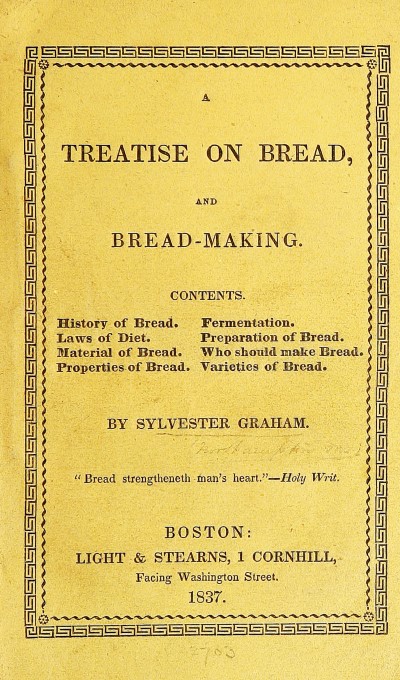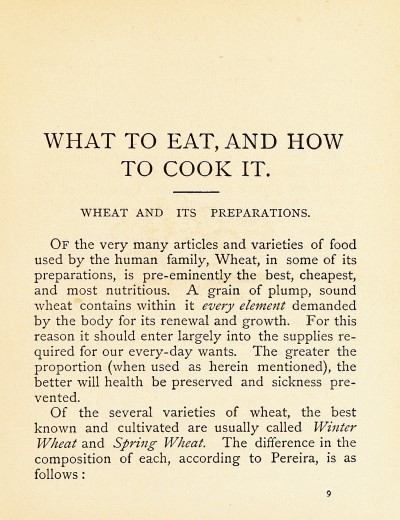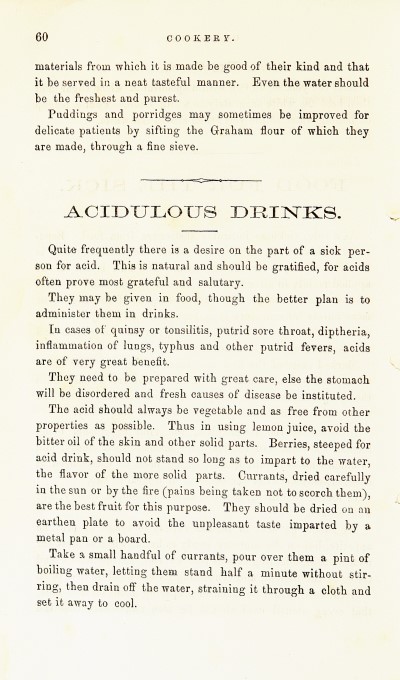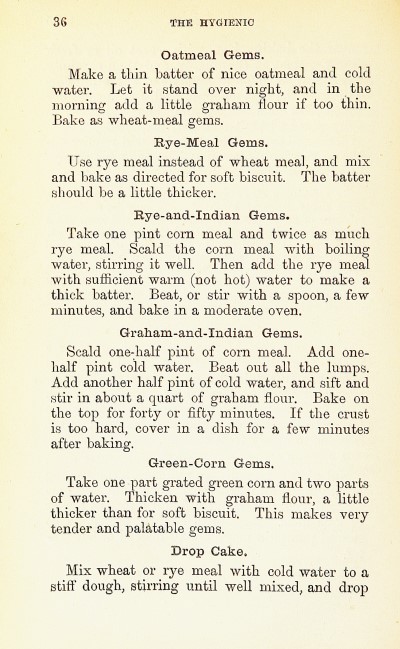Books for Cooks: Food as Medicine
 | A Treatise on Bread and Bread-Making (1837)
The vegetarian movement in the United States was spearheaded by minister Sylvester Graham, a temperance leader and promoter of graham flour. In 1837 he published A Treatise on Bread and Bread-Making, which includes a history of bread and recipes for making whole-grain loaves. AAS’s manuscript collection includes Graham’s folio volume of handwritten lectures, notes, and copies of letters from his followers.
Look inside (PDF) Item description / catalog record
|
 | What to Eat and How to Cook It (1870)
In addition to vegetarian cookbooks, there are several “hygienic cookbooks” in the collection written by members of various nineteenth-century health and diet reform movements. These movements warned against “stimulating” substances such as meat, spices, and alcohol. The authors and their supporters believed that bland foods would encourage good health and help Americans avoid sin. In What to Eat and How to Cook It (1870), John Cowan calls vinegar “an abomination.” He claims vinegar “does not supply an iota of nutrition” and instead disturbs digestion. Albert Jones Bellows asserts in The Philosophy of Eating that the closer food is to its natural state when eaten, the more nutritious.
Look inside (PDF) Item description / catalog record
|
 | The Health Reformer’s Cook Book (1872 edition)
Hygienic cookbooks emerged parallel with the popularity of water cure sanitariums, where an entirely new type of food was created—breakfast cereal. The Health Reformer’s Cook Book (1872 edition), written and compiled by Lucretia Jackson in 1867, contains many vegetable-based recipes in keeping with the ideals of the health reform movement. Jackson was integral to the running of Our Home on the Hillside, a sanitarium in Dansville, New York, founded by her husband. Her cookbook contains a recipe for “rusk,” perhaps the earliest version of breakfast cereal.
Look inside (PDF) Item description / catalog record
|
 | The Hygienic Cook Book (1876)
In Michigan, John Harvey Kellogg (who later invented Corn Flakes) wrote over fifty books on health and diet. His third, The Hygienic Cook Book (1876), was written just after he became the head of the Battle Creek Sanitarium, founded by the Seventh-Day Adventist Church in 1866.
Look inside (PDF) Item description / catalog record
|
Readers can browse through the cookbooks digital library of over 100 digitized cookbooks or start with thematic introductions describing a few select cookbook titles in the following categories:



